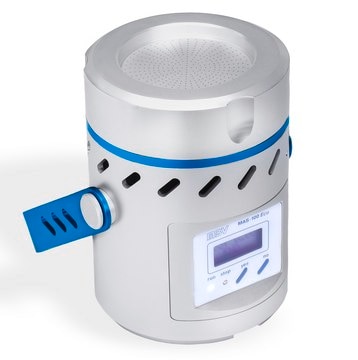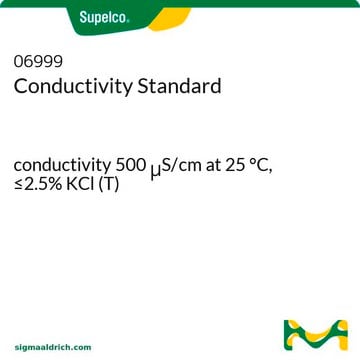Recommended Products
manufacturer/tradename
BioControl Systems 64001-25
MVP ICON®
Quality Level
General description
The MVP ICON ATP Positive Control provides a sample which produces a positive ATP result when assayed with the MVP ICON system.
Application
It is recommended that ATP positive controls be run every other day of use and incorporated into an overall Quality Control program which monitors and tracks the MVP ICON system results over an extended period of time.
Components
Twenty-five (25) sealed glass vials containing approximately 1 x 10-13 moles of lyophilized Adenosine triphosphate (ATP).
Suitability
ATP Testing, Food Processing, HACCP Monitoring, Sanitation
Principle
The detection of ATP through bioluminescence is a well-established and widely used indicator of surface hygiene and cleaning efficacy in food processing. Visual inspection is not an adequate critical control for surface hygiene and the lengthy time-to-result of microbiological test methods (from 2 - 7 days) make them ineffective for hygiene monitoring. ATP detection with the MVP ICON provides results in 10 seconds allowing for immediate "go/no-go" decisions to be made prior to the start of processing and allows for correction actions, when necessary, to be taken immediately. ATP is a molecule that is found in all living cells, including: bacteria, yeast, mold and all organic matter. After cleaning and/or sanitizing, food processing equipment and the plant environment is tested for ATP. If cleaning/sanitizing has been effective, ATP levels should be low.
Testing Method
ATP Bioluminescence
Legal Information
MVP ICON is a registered trademark of Merck KGaA, Darmstadt, Germany
Storage Class
10 - Combustible liquids
flash_point_f
Not applicable
flash_point_c
Not applicable
Choose from one of the most recent versions:
Already Own This Product?
Find documentation for the products that you have recently purchased in the Document Library.
Customers Also Viewed
Articles
Media fill tests for beverages ensure that the filling line is not contaminated with spoilage bacteria, yeasts, or molds, during the production of low-acid aseptic beverages.
Our team of scientists has experience in all areas of research including Life Science, Material Science, Chemical Synthesis, Chromatography, Analytical and many others.
Contact Technical Service













